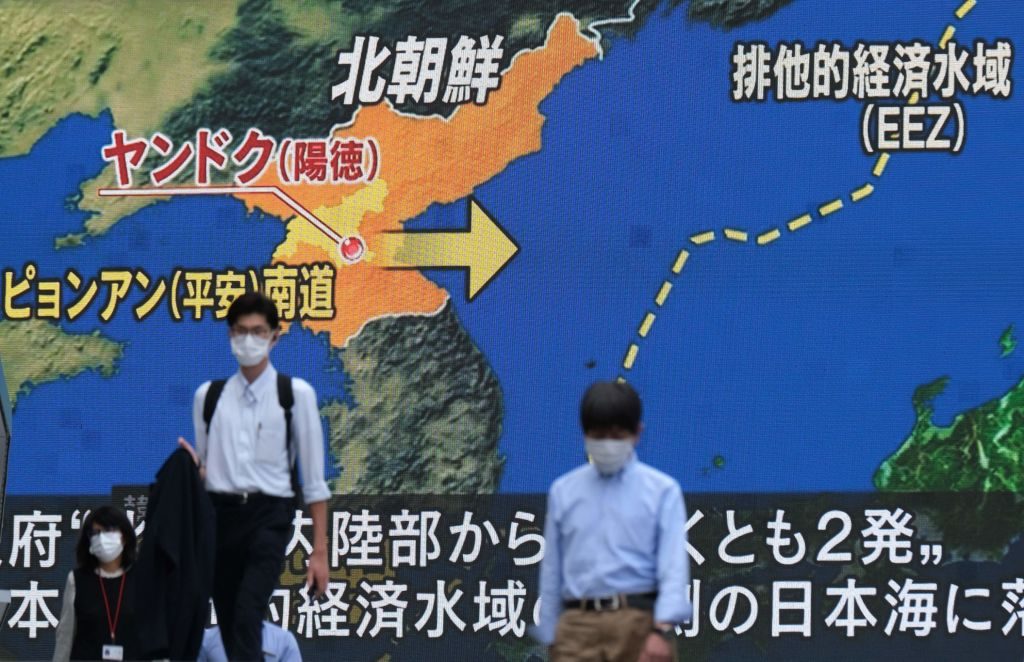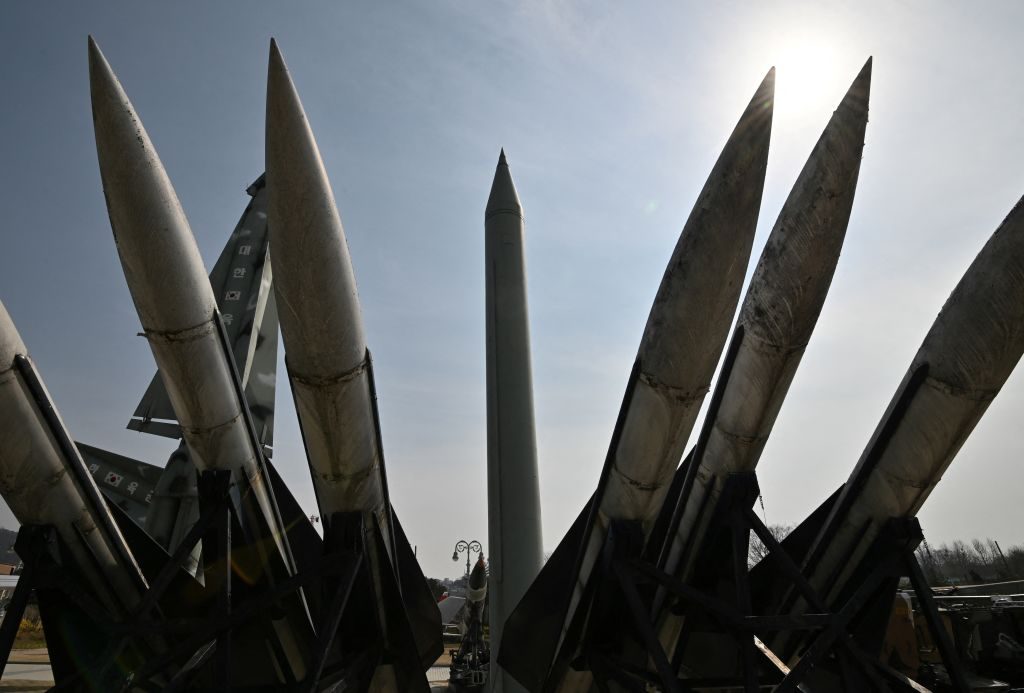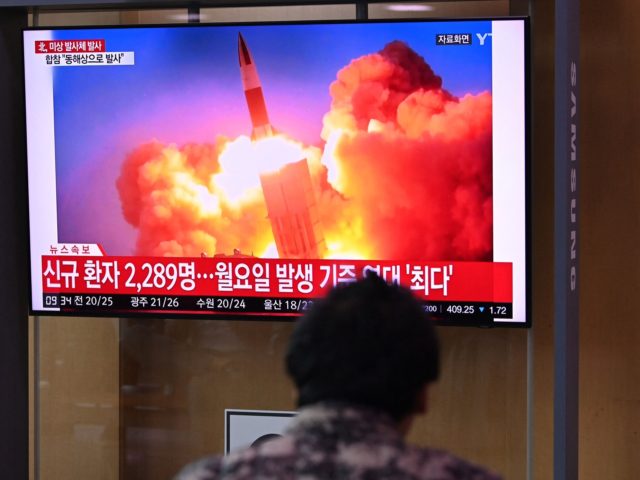North Korea apparently launched a short-range ballistic missile into the Sea of Japan on Tuesday, its third provocative test of banned missiles in the past month. The North Korean regime insisted the weapons tests were an appropriate response to the “hostile policy” of the United States and South Korea.
The South Korean military detected a single “projectile” fired from North Korea’s Jagang Province at about 6:40 a.m. on Tuesday. The projectile flew over the eastern coast of North Korea into the Sea of Japan, which Koreans refer to as the East Sea.
The Japanese government said the projectile appeared to be a ballistic missile that splashed down outside of Japan’s exclusive economic zone, unlike North Korea’s previous launch, which flew far enough into Japanese waters to enrage Tokyo.
South Korea, Japan, and the U.S. Indo-Pacific Command are analyzing the launch to determine both the capabilities of the weapon and North Korea’s purpose for launching it.
South Korean officials seem inclined to look on the bright side, suggesting the launch might have been Pyongyang testing Seoul’s commitment to the peace overtures made by President Moon Jae-in at the United States last week.
Under this theory, a sufficiently mellow response to this latest provocation from South Korea could entice the North to respond favorably to Moon’s proposal to formally end the Korean War after seven decades of armistice.

Pedestrians walk past a screen displaying a map explaining North Korea’s missile launch from the land of the country toward the Sea of Japan during a news broadcast at Akihabara district in Tokyo. (KAZUHIRO NOGI/AFP via Getty Images)
“In recent days, Kim Yo-jong, the dictator’s sister, has dangled the prospect of agreeing to another inter-Korean summit if Seoul were to show Pyongyang mutual respect and impartiality,” the Wall Street Journal (WSJ) observed on Tuesday.
A spokesman for South Korea’s Defense Ministry said on Tuesday the North has thus far been “unresponsive” to calls placed on the military hotlines linking the two countries.
The U.S. was less optimistic about the launch. A statement from the Indo-Pacific Command criticized the “destabilizing impact of the DPRK’s illicit weapons program” and reiterated America’s “Ironclad” commitment to defend South Korea and Japan. DPRK is the North Korean government’s preferred name for itself, the Democratic People’s Republic of Korea.
Japanese Prime Minister Suga Yoshihide said on Tuesday Japan will be “stepping up its vigilance” in response to North Korea, whose provocations are “threatening the peace and safety of our country and the entire region.”
Japanese Defense Minister Nakayama Yashuhide said it was “clear” the Tuesday launch was part of North Korea’s program to improve its missiles, but added it was “necessary” for Japanese officials to consult with their American and South Korean counterparts before making further statements.
Speaking from the U.N. General Assembly in New York, North Korean U.N. Ambassador Kim Song insisted his country is entitled to develop better weapons to counter the “hostile policy” of the U.S. and South Korea, no matter what U.N. Security Council resolutions against North Korea’s missile programs might say.
“Nobody can deny our righteous right to self-defense,” Kim said.

Replicas of a North Korean Scud-B missile (C) and South Korea’s Hawk missiles are displayed at the Korean War Memorial in Seoul on March 24, 2021. (JUNG YEON-JE/AFP via Getty Images)
“If the U.S. shows its bold decision to give up its hostile policy, we are also prepared to respond willingly at any time, but it is our judgment that there is no prospect, at the present stage, for the U.S. to really withdraw its hostile policy,” he added.
Kim said those “hostile policies” included the U.S. deploying “strategic weapons” around the Korean Peninsula, and demanded the U.S. and South Korea “permanently stop” their joint military exercises.”
The North Korean ambassador insisted those weapons and exercises are unnecessary because the DPRK would “never violate or endanger the security of the U.S., South Korea, or our neighboring countries.”

COMMENTS
Please let us know if you're having issues with commenting.